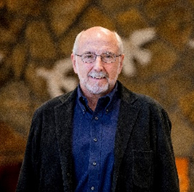
|
INVITED SPEAKERS
Invited Addresses
Lifetime Achievement Address
Friday, November 20 | 11:45a.m. - 12:45p.m. Managing Anxiety in Youth: More Action Than Talk Philip C. Kendall, Ph.D., ABPP, Distinguished University Professor, Laura H. Carnell Professor of Psychology, Temple University
Dr. Kendall was twice a Fellow at the Center for Advanced Study in the Behavioral Sciences at Stanford, won the Research Recognition Award from the Anxiety Disorders Association of America and was awarded the Aaron T. Beck Award for "Significant and Enduring Contributions." Dr. Kendall received an award for the "Most valuable Paper with Enduring Impact." The awarding journal took nominations from 30 journals of impactful papers published at least 30 years ago. His paper entitled "The Anxious Child: Cognitive-Behavioral Treatment Strategies" was the winner. His treatment for anxiety has been evaluated in numerous randomized clinical trials conducted in different countries, examined by literature reviewers, and subsequently given the designation of an "empirically supported treatment." Dr. Kendall has contributed as a scientist, teacher, and leader. He is known for his rigorous methodology, creative and integrative approaches, and commitment to graduate mentoring. An avid completer of the New York Times Crossword (every day except Saturday), Dr. Kendall plays basketball twice a week, tennis, and enjoys opportunities to spend time in the ocean and with his family. Primary Categories: anxiety in youth, CBT treatment for anxiety Keywords: anxiety, treatment, youth Moderate level of familiarity with the material Participants earn 1 continuing education credit Clinical strategies within empirically supported treatments, and a flexible manual-based approach, will be the focus. Some guiding theory and the findings from key studies will be considered, as will the data-based predictors, moderators, and mediators of differential treatment outcomes. Technological advances will be mentioned, including computer-assisted (a) treatment, (b) therapist training, and (c) parent-training, and a compatible phone app. The next needed efforts will be suggested. At the end of this session, the learner will be able to:
Recommended Readings: Kendall, P. C., Cummings, C., Villabo, M., Narayanan, M., Treadwell, K., Birmaher, B., Compton, S., Piacentini, J., Sherrill, J., Walkup, J., Gosch, E., Keeton, C., Ginsburg, G., Suveg, C., & Albano, A. M. (2016). Mediators of change in the Child/Adolescent Anxiety Multimodal treatment Study. Journal of Consulting and Clinical Psychology, 84, 1-14. Villabø, M., Narayanan, M., Compton, S., Kendall, P. C., & Neumer, S. (2018). Cognitive-behavioral therapy for youth anxiety: An effectiveness evaluation in community practice. Journal of Consulting and Clinical Psychology, 86, 751-764. Wood, J., Kendall, P. C., Wood, K., Kerns, C., Seltzer, M., Small, B., Lewin, A., & Storch, E. (2020). Cognitive behavioral treatments for anxiety in youth with Autism Spectrum Disorder: A randomized clinical trial. Journal of the American Medical Association (JAMA) Psychiatry, 77, 474-483.
|
 Dr. Kendall is Distinguished University Professor and Laura H. Carnell Professor of Psychology. His CV lists over 800 publications, including over 25 books and over 20 treatment manuals and workbooks. His treatment for anxiety in youth has been translated into over a dozen languages. He has had 35 years of grant support from various agencies (e.g., NIMH; NICHD; MacArthur). Having received many thousands of citations annually, he was identified as a "Most Highly-Cited" individual in all of the social and medical sciences (top 1%). In an analysis of the publications by and citations to all members of clinical psychology in APA-approved programs, Dr. Kendall ranked 5th. With 60,000 citations to his work, his recent H factor is 126.
Dr. Kendall is Distinguished University Professor and Laura H. Carnell Professor of Psychology. His CV lists over 800 publications, including over 25 books and over 20 treatment manuals and workbooks. His treatment for anxiety in youth has been translated into over a dozen languages. He has had 35 years of grant support from various agencies (e.g., NIMH; NICHD; MacArthur). Having received many thousands of citations annually, he was identified as a "Most Highly-Cited" individual in all of the social and medical sciences (top 1%). In an analysis of the publications by and citations to all members of clinical psychology in APA-approved programs, Dr. Kendall ranked 5th. With 60,000 citations to his work, his recent H factor is 126.